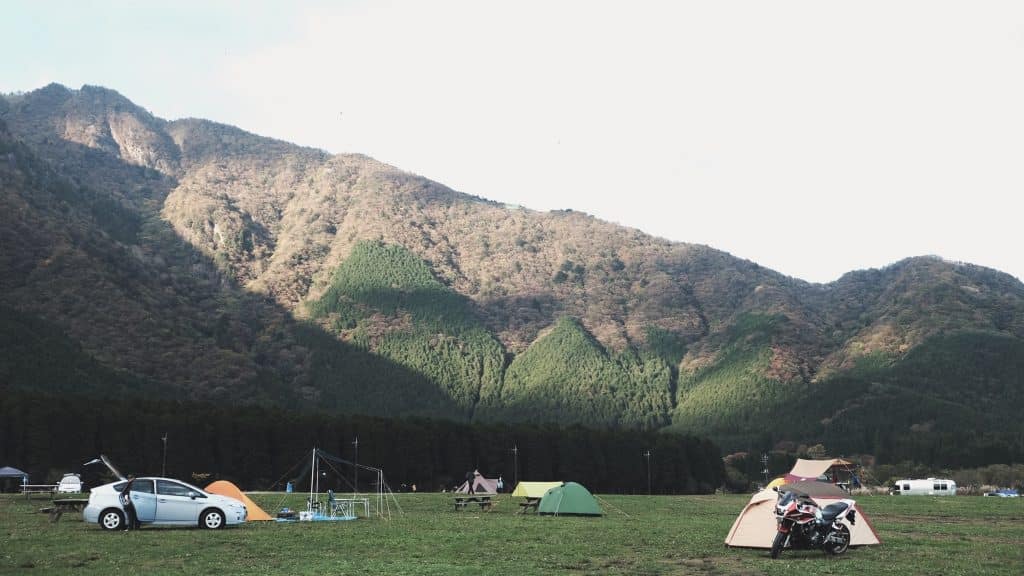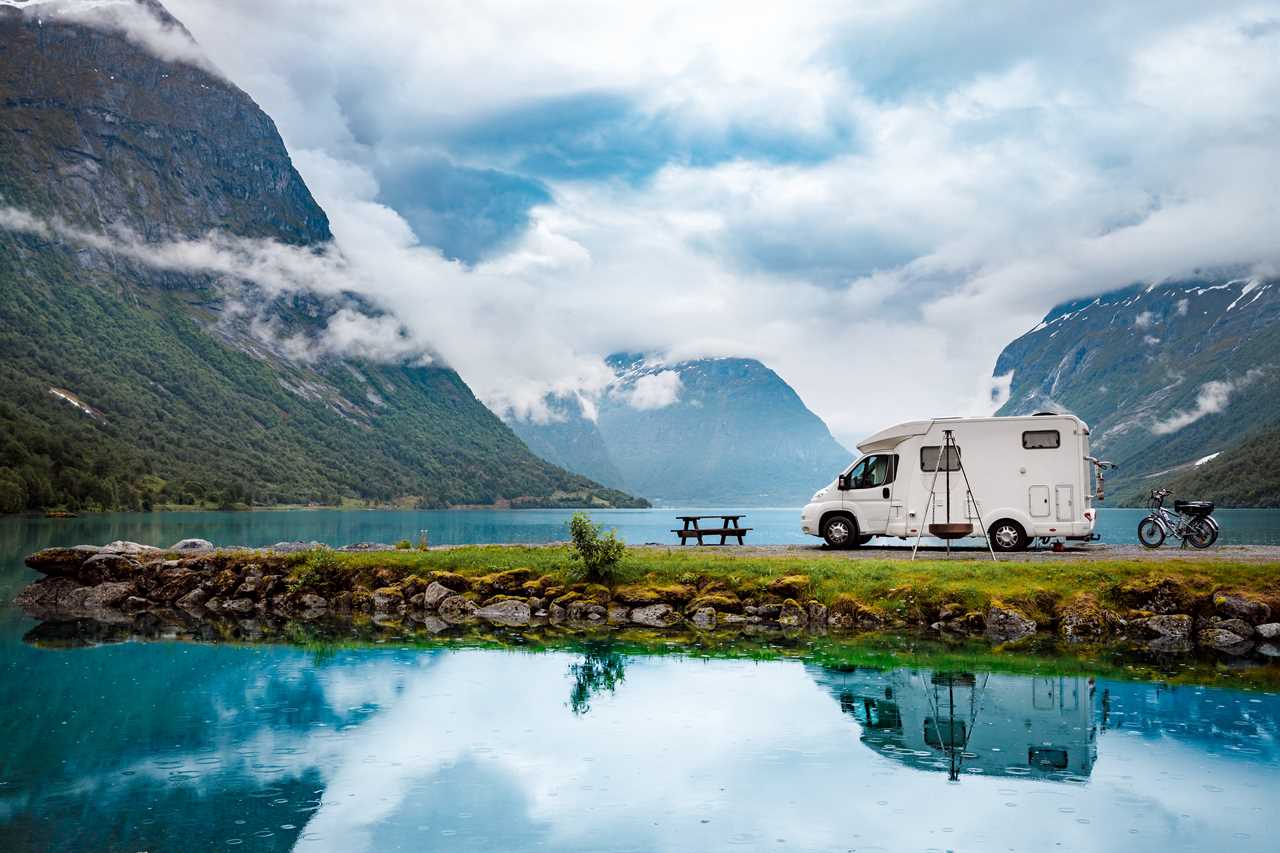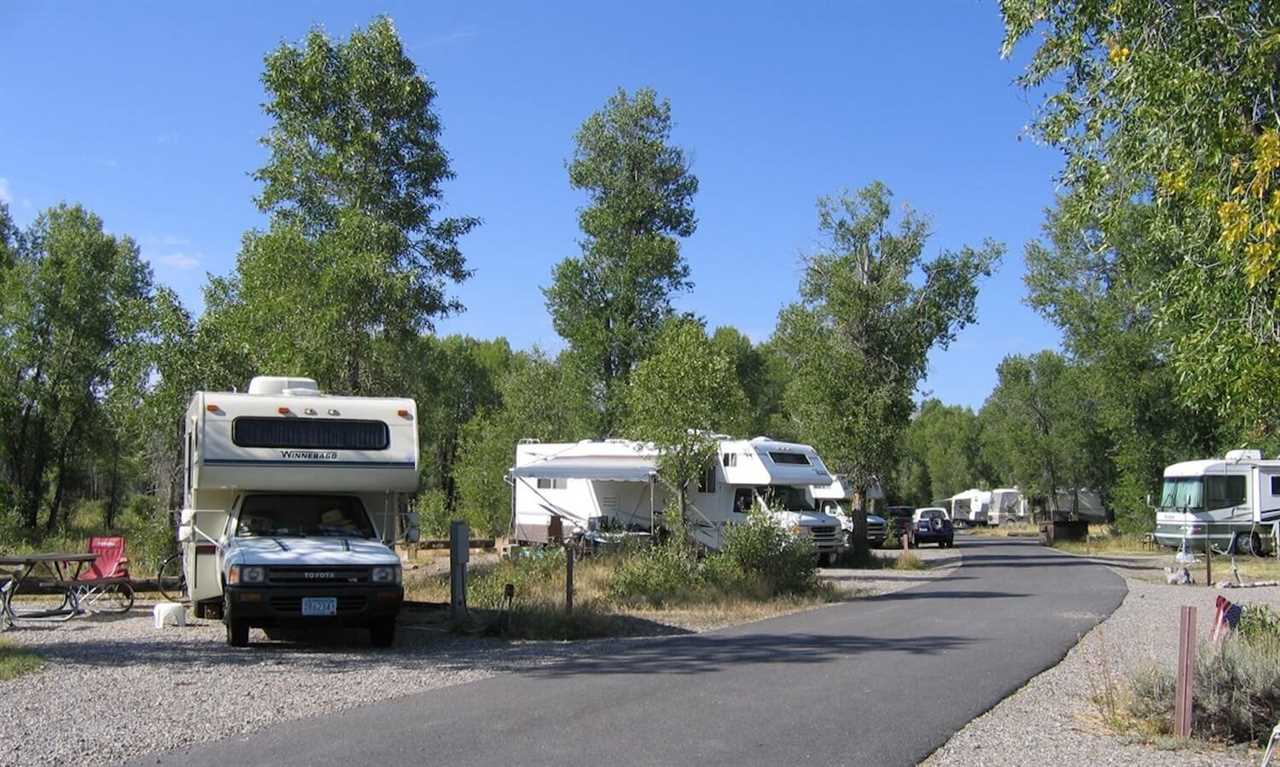Work camping (or workamping) is by no means a new concept. As long as campers have been RVing full-time, they’ve been finding jobs to help supplement their mobile lifestyles. With modern technology, though, our options have significantly expanded. Work camping doesn’t mean what it used to, but it’s arguably more accessible than ever.
Want to make money while living the RV life? Here are the things you need to know.
A Brief History of Work Camping

Before 2020 and the expansion of working remotely, work camping meant traveling to find a part-time job where you were camping — at a campground, RV resort, national park, state park, local monument, etc. These jobs were usually seasonal (i.e. during heavy camping seasons). The responsibilities of these seasonal jobs include collecting park and camping fees, renting facilities, answering questions, answering phones, and conducting basic grounds maintenance.
Seasonal work camping was a more common option for older RVers or retirees.
At national and state parks, work campers are sometimes given a free campsite in exchange for working a certain number of hours per week. This allows the workcamper to answer visitor questions while also offering a discount on seasonal RV camping.
Modern Work Camping Opportunities

These days, Wi-Fi, smartphones, expanded cellular coverage, and accessories like signal boosters have redefined work camping. Now, if you conduct your work from a laptop, you an work from anywhere. Businesses across the globe employ remote workers, and many of those workers have taken to the road in some of the best RVs for working remotely.
If you’re camping in a park, many offer Wi-Fi or a wired internet connection as part of the camping fee. Many RVers and van lifers that prefer boondocking over traditional campgrounds also swear by Starlink internet.
This expanded connectivity has expanded the definition of work camping. You no longer have to be tied to a specific location, and numerous online jobs can be done with a computer and a solid internet connection.
Which Type of Work Camping Is Right For You?
There are two main types of work camping conducive to RV living: location-based, where you camp on-site of your job (or very close by) , and location-independent, which allows you to park your RV anywhere you can get Wi-Fi or enough cell reception to operate a mobile hotspot.
Benefits of Remote Work Camping
Let’s start with the benefits of remote (location-independent) work camping:
Be Your Own Boss

Many RVers start their own businesses in marketing and public relations, or photography, consulting, writing, graphic design, and almost anything remotely associated with the web — but the sky is the limit. Even if you don’t start a business, many companies will allow you to work remotely as long as you meet deadlines.
If you’re digitally savvy, you can probably turn it into work from your RV. And the side benefit of working for yourself is the ability to set your own schedule. If you need an extra day to travel to your next destination, you can typically take it. Check out stories from these real RVers working from the road.
- From Marketing VP to Digital Nomad with Hannah from Curly Nomad
- Finding Remote Work with More Than a Wheelin
- RVing Photographer: An Interview with Savannah Cummins
- Why We RV: Mandy Lea of Mandy Lea Photo
- Why We RV: Ben and Rebecca Pazdernik of His and Hers Vlogs
Customize Your Work View

Image: Shutterstock
We all work in different ways, but many remote workers find that regular scenery changes provide added inspiration. It’s often easier to buckle down and finish your work when finishing frees you up to explore the gorgeous beach or enticing hiking trail lying outside your window.
Of course, if you really need to pop out for a quick dip in the ocean, that’s perfectly fine. You can work in the evening. Because you’ve got nowhere to be.
Fund Your Explorations

There’s no more waiting around until you have the money for RV travel. You can travel and earn as you go, so you don’t waste time sitting around wishing for the day you’ll be able to explore. Especially in the US, there’s so much diversity to be discovered. Remote work allows you to travel while still working towards your career goals.
Benefits of Location-Based Work Camping
There are also advantages of setting up an RV base camp to work in one place as well. Here are some benefits of location-based work camping:
Learn a Place Inside and Out
Whether you’re a camp host or enjoying a work stay at a farm, winery, or another type of business, you’ll have the chance to really get to know a place. Instead of moving around every few days, you can stay for a whole season.

Gros Ventre Campground Photo by A Mattson via NPS
Build Community
Staying in one place for a longer period naturally provides more opportunities to meet people and build community. Even if you wind up moving on after one season, you’ll likely have connections in that place if you ever return.

Group of Friends at Beach
Acquire New Skills
While remote work allows you to capitalize on your digital skill set from anywhere, location-based work camping can help you build new skills. You might learn how to be a park host one season and acquire the skills of organic farming the next. And you never know where those new skills will lead.
What To Look For in an RV for Work Camping
Some newer RVs come with a desk area, but almost any model can be equipped with one. If you’re not interested in giving up space to create a home office in your RV, a convertible dinette works well as a desk too.
Comfortable desk space is arguably the most important RV feature for remote work campers. But here are a few others to consider:
- An outdoor shower. Great for work camping jobs that require you to get your hands a bit dirty.
- Blackout window treatments. Great for times when you’re ‘off-duty’ as a campground host.
- Solar prep or solar panels. Great for extended work camping stays without full hookups.
- A portable power station. Essential for remote workers to keep their electronics charged.
How to Find Work Camping Jobs

Some RV parks advertise host positions on their websites, but here are a few free work camping job boards to check out:
- Workamper News
- Workamping Jobs
- Kamper Jobs
State and national parks also advertise work camping jobs on their regional or federal websites. So if you know you’re looking for a job in a particular region, search for jobs based on the state or federal agency operating campgrounds in that area.
Final Tips for Work Campers
Working from the road is very attainable, but a word to the wise: it requires discipline when you’re working alone. These tips will help you maximize productivity when working so you can enjoy it when you’re not:
- Keep tasks organized in a print or digital planner so you’re not constantly trying to remember which deliverables are due when.
- Set definite times when you’re going to focus on work without distractions.
- Communicate early, often, and effectively. Whether it’s with clients for your remote work or a location-based employer, communication is key to win-win work camping.
Want to get started as a work camper? Camping World can help you find the RV that best suits your work/life balance.
What other questions do you have about work camping? Let us know in the comments below.
By: Cy Wood
Title: A Quick Guide to Work Camping
Sourced From: blog.campingworld.com/the-rv-life/fulltiming/quick-guide-work-camping/
Published Date: Tue, 27 Sep 2022 14:00:54 +0000
---------------------------------------------
 CampingSurvivalistHuntingFishingExploringHikingPrivacy PolicyTerms And Conditions
CampingSurvivalistHuntingFishingExploringHikingPrivacy PolicyTerms And Conditions
